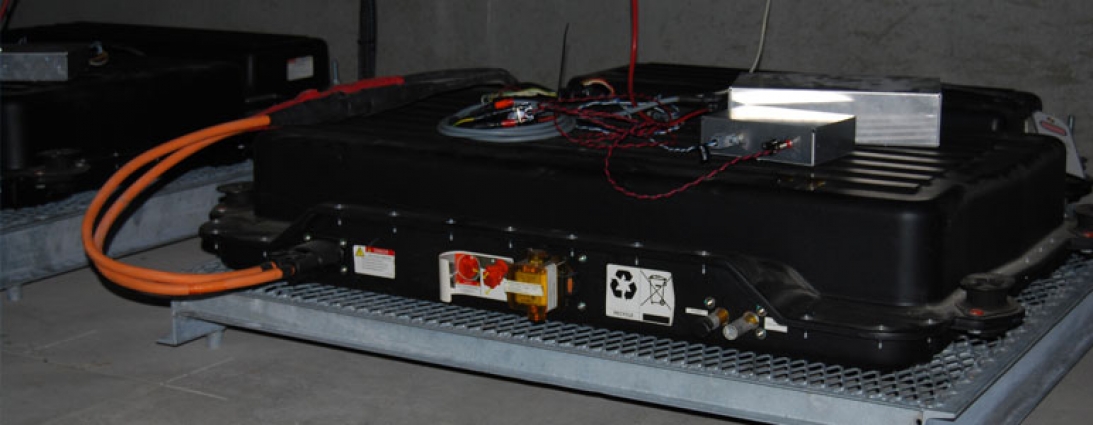

Research study looks at energy storage applications
CCSE is teaming up with the Department of Energy’s National Renewable Energy Laboratory ( NREL) to study how lithium ion batteries from electric vehicles (EVs) can have a “second life” in energy storage. The $700,000 award from NREL will be leveraged by an ongoing California Energy Commission-funded CCSE/UC Davis study on the repurposing of used EV batteries for home energy storage.
Possible secondary uses for lithium ion (Li-ion) batteries include residential and commercial power management, grid stabilization and renewables firming — which involves stabilizing power provided to the grid by variable resources such as wind and solar energy. To date, no one has comprehensively studied the feasibility, durability and value of Li-ion batteries for second-use applications. It is estimated that Li-ion batteries have 70 to 80 percent of their capacity even when they can no longer power cars and trucks.
The project will begin with a comprehensive techno-economic analysis addressing all aspects of a battery’s life cycle in search of the best second-use strategies, followed by a comprehensive test program to verify findings, particularly life of batteries. For the field test, researchers will deploy aged EV batteries at the University of California, San Diego’s campus microgrid so that they can be accessed for power to supplement solar power or to meet peak energy demands.
The cost of Li-ion batteries affects the affordability of EVs for consumers. Researchers will see if the potential for reusing Li-ion batteries could lead to consumers obtaining a cost credit for the residual value, potentially offsetting a portion of the initial cost to the EV buyer.
With the Nissan LEAF, for example, "over half the cost is for the battery alone," said Mike Ferry, CCSE transportation program manager. "That's a big obstacle for the industry."
Allocating used electric vehicle batteries to second-use applications also could benefit the environment by deferring the recycling or disposing of batteries.
Team Members
The CCSE project team includes the UC Davis Plug-In Hybrid Electric Vehicle Research Center, the UC Berkeley Transportation Sustainability Research Center, UC San Diego, San Diego Gas & Electric and AeroVironment. NREL’s cross-cutting capabilities and expertise in energy storage, advanced vehicles, grid interfaces, system analysis and solar and wind energy will provide overall project direction and critical assessment.
